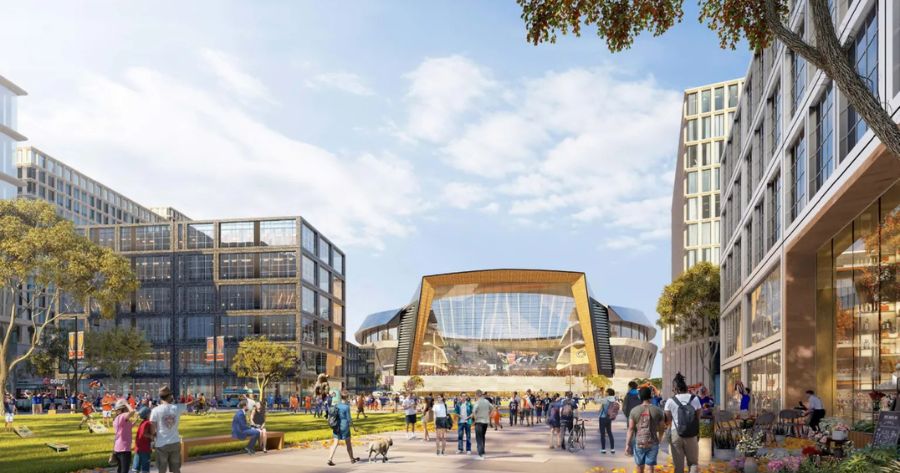A rendering of the proposed Chicago Bears stadium at the former Michael Reese Hospital on Chicago’s South Side (Image Credit: Farpoint Development).
A Chicago development group is making a last-ditch effort to keep the Bears in the city, revealing plans for a massive new stadium on the South Side. Farpoint Development on Friday released renderings of a proposed $3.2 billion, 75,000-seat enclosed stadium on the former Michael Reese Hospital site, along with a mixed-use development.
The plan includes $356 million in privately funded parking and infrastructure, a park bridge over Lake Shore Drive, and 5 million square feet of surrounding development space. Farpoint says the project will require $600 million in public funding for infrastructure.
“We believe in Chicago,” Farpoint founding principal Scott Goodman said in a statement. “We have proposed an opportunity for the Bears to explore our site, which is viable and where a stadium can fit. And it fits on the South Side of Chicago, bridging the gap to downtown.”
The Bears, however, declined to comment. The team has previously dismissed the site, citing concerns about its narrow layout and commuter rail tracks that could pose engineering challenges.

Rendering of the public area and market outside of the proposed Bears stadium at the Michael Reese grounds (Image Credit: Farpoint Development).
Competing Stadium Plans
Bears president Kevin Warren has pushed for a different vision—building a stadium next to Soldier Field as part of a $3.2 billion overhaul of the lakefront museum campus. That plan, which also includes $1.5 billion in infrastructure and a possible publicly owned hotel, has the backing of Mayor Brandon Johnson but has received a lukewarm response from Illinois Gov. J.B. Pritzker and state lawmakers.
Meanwhile, the Bears also own a 326-acre site in Arlington Heights, where they have proposed a nearly $5 billion stadium and entertainment district.
The team has played at Soldier Field since 1971. Its lease runs through 2033, but its long-term home remains uncertain.
The Associated Press contributed to this report.
